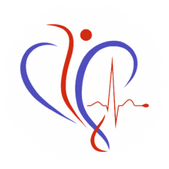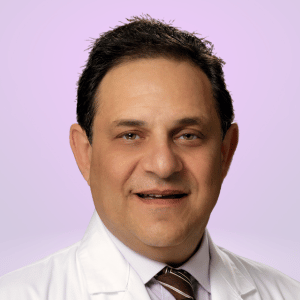Skip The Waiting Room!
Book Online Before You Arrive.
We have up to date schedules, contact information, & let you book appointments online.
Understanding Heart Health
The heart is vital to your overall health, pumping blood, nutrients, and oxygen to the body’s organs and tissues. When blood flow to the heart is restricted, it can lead to serious conditions like coronary artery disease or heart attacks. Early diagnosis through advanced testing, such as Nuclear Stress Testing, is key to preventing heart-related complications.
At Champion Heart and Vascular Center, we offer Nuclear Stress Testing to give you a comprehensive evaluation of your heart’s function. This non-invasive procedure helps detect coronary artery blockages, abnormal blood flow, and potential heart conditions.
Why Choose Champion Heart and Vascular Center for Nuclear Stress Testing?
- Advanced Technology: Our facility uses the latest imaging techniques to ensure precise results.
- Expert Cardiologists: Our highly trained cardiologists specialize in interpreting test results to tailor treatment plans.
- Patient-Centered Care: We prioritize your comfort, safety, and health throughout the entire testing process.
- Comprehensive Service: From diagnosis to follow-up care, we provide a complete cardiovascular health solution.
What is Nuclear Stress Testing?
Nuclear Stress Testing is a diagnostic tool that evaluates how well your heart functions under stress and at rest. The test uses a small amount of radioactive material and imaging technology to track blood flow and identify any areas of concern in your heart.
Why Choose Nuclear Stress Testing?
- Accurate Diagnosis: Nuclear stress tests provide detailed images of your heart, helping to identify issues such as blockages, damaged tissue, or reduced blood flow.
- Early Detection: This test can detect heart disease and other conditions at early stages, even before symptoms appear.
- Non-Invasive: It’s a safe, non-invasive procedure that involves minimal radiation exposure.
- Enhanced Visualization: It offers clear, high-resolution images of the heart’s blood flow, allowing for accurate assessment.
Common Conditions Detected by Nuclear Stress Testing
- Coronary Artery Disease (CAD): A narrowing or blockage of the heart’s arteries due to plaque buildup.
- Heart Muscle Damage: Damage to the heart muscle caused by previous heart attacks.
- Ischemia: Reduced blood flow to the heart muscle, which can lead to chest pain or heart attacks.
- Arrhythmias: Abnormal heart rhythms that may indicate underlying heart conditions.
Nuclear Stress Testing Procedure Overview
- Radioactive Tracer Injection: A small amount of radioactive material is injected into your bloodstream to help visualize the blood flow to your heart.
- Stress Induction: You will either walk on a treadmill or receive medication to simulate exercise, causing your heart to work harder.
- Imaging: Specialized imaging equipment captures images of your heart at rest and during stress.
- Analysis: Our expert cardiologists analyze the images to identify any blockages, reduced blood flow, or heart abnormalities.
What to Expect During Your Test
- Preparation: You may be asked to avoid eating or drinking for a few hours before the test. Medications may be adjusted based on your doctor’s instructions.
- Duration: The test usually takes about 2-3 hours, with a period of rest and stress.
- Comfort: While the procedure involves a small injection and stress induction, the test is generally well-tolerated.
Why Book with Champion Heart and Vascular Center?
- Cutting-Edge Technology: We use the latest nuclear imaging technology for highly accurate results.
- Expert Cardiologists: Our heart specialists ensure the best care and the most effective treatment plans based on your results.
- Patient-Centered Approach: From test preparation to follow-up care, we are with you every step of the way.
- Flexible Scheduling: Book your test at your convenience, and we’ll take care of the rest.
Chest pain, shortness of breath, dizziness, or unexplained fatigue are common symptoms that may require further investigation with a nuclear stress test.
Nuclear stress testing provides highly accurate results, helping detect heart disease before symptoms appear.
Yes, the procedure uses minimal radiation, and the benefits of early detection far outweigh the risks for most patients.
You may be asked to fast for several hours before the test. We’ll provide specific instructions during your consultation.
Your cardiologist will review the results and discuss the next steps. If any issues are identified, a personalized treatment plan will be developed.
Here are industry experts who can help you
Radhakrishnan Ramaraj, MD FSCAI
President, Board Certified Interventional Cardiologist Vascular Medicine & Endovascular Interventions
Eric Lo, MD
Board Certified Interventional Cardiologist Peripheral Intervention & Structural Cardiologist
Need some advice from our experts?
Request a Call Back Today Now!
We will make a single attempt to contact you from a withheld number, usually within 24 hours of your request.









